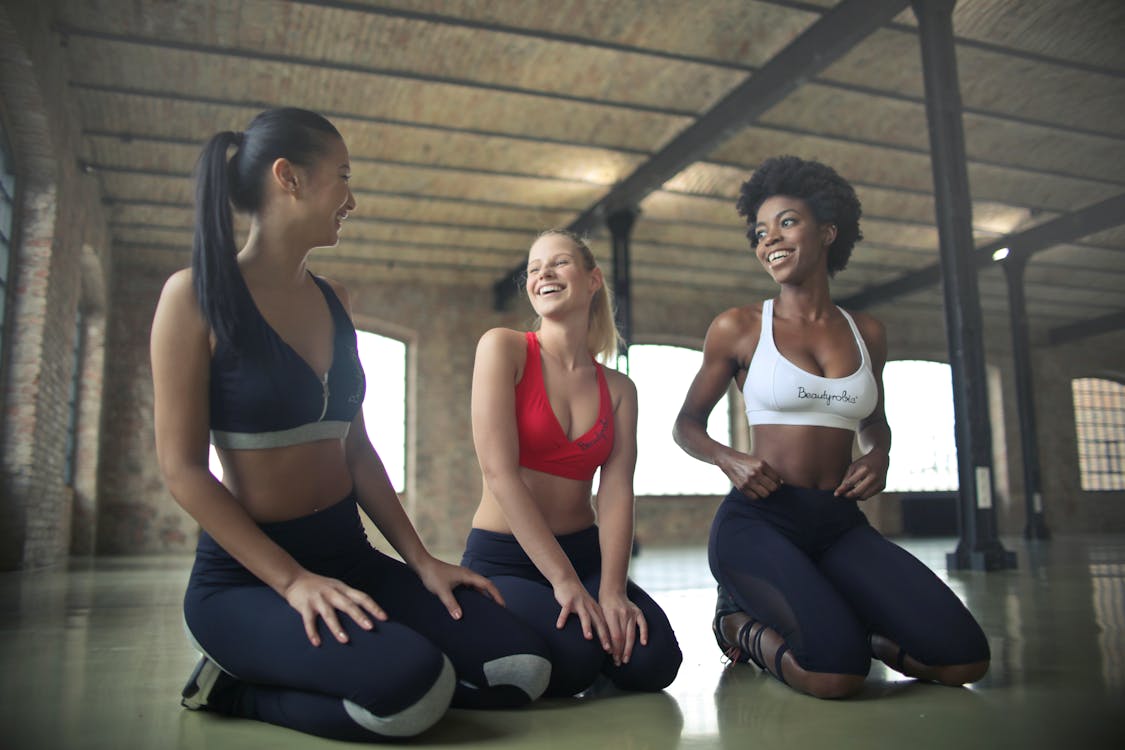“Happiness is a butterfly, which, when pursued, is always beyond our grasp, but which, if you will sit down quietly, may alight upon you,” -Nathaniel Hawthorne.
Happiness is one of those very vague topics. It’s hard to describe. In fact, I don’t even think we know if when we say we’re happy, it means exactly what another person says when they say they’re happy. It is a very vague construct.
There is a book by Daniel Gilbert called Stumbling on Happiness, and it was an interesting reflection on happiness in general. It points out that people are happy and find happiness in the most extraordinary situations. For example, conjoined twins that struggled quite a bit with their physical limitations of being conjoined were incredibly happy in this particular case, in this book. Their definition of happy was being together and having that person with them all the time. I was reading an interview with a conjoined twin, and they said they couldn’t imagine being so alone and not having their twin with them. The book also mentions that we’re different than almost every animal on the planet because we can plot the future, we can think about how much control we have over the future, and try to adjust it. The problem is, is that we tend to be very bad at predicting it. We don’t understand that we can’t control all the things we hope to control. When we plan for something in our future, and then we don’t get it, it makes us very unhappy. People are sensitive to relative values when it comes to happiness. Not just what did I expect to have in the future? And then I didn’t get, or what do I see around me that I don’t have. So happiness seems to be this relative measure of what we think should be ours and isn’t. We talked a little bit about that in the stoicism episode where stoics believe that there’s this gap between what you want and what you have, and it’s the gap that makes you unhappy. The book also talks about the fact that we have a psychological immune system, which buffers us against traumatic events. These systems protect us from very painful things or huge disappointments. How people see positive things and negative things is often how they either buffer bad events in their lives or enhance them.

Daniel Nettle wrote a book called Happiness, The Science Behind Your Smile. It’s a book that primarily talks about statistics and scientific research on happiness. It has a few interesting facts for us when we’re considering happiness itself. Married people are the happiest; single people are somewhere in the middle. Money is not as strong as social class is when it comes to happiness. And that may seem confusing because we tend to think of social class as directly related to money. But that’s more a condition of our society today. Social class has to do a lot with the privilege of special things, education, opportunities, meaningful responsibility, leisure time, and personal control. In certain circumstances, people have attained those types of things without the money behind it. It may be someone who’s brilliant as a scientist and has invented and discovered many things but never became rich off of it. But because of that social value they have in society, they have achieved that social class. So that is more important to happiness, that it is direct money. The study was interesting. It went through and discovered that janitors today make more money than doctors did 50 years ago. So you would think that the janitors would be as happy today as the doctors were 50 years ago because they even have more money. And yes, it’s even more money in terms of inflation, buying power, all those things. And they’re not. There’s more to it than just your money. I was reading a history book. And it said that the libraries that most of us have, rival the libraries of the richest people on the planet in 1910. The wealth that we have around us is far more than what kings and queens had in history. And yet, we still have that social stratification in our brains that has more control over whether we’re happy than the actual dollars themselves. It’s something to consider.

Getting a raise gave short term happiness, but it had no long term impact. Men are are a little bit happier than women. Most people are happiest when they have autonomy. He said that people hate to be told what to do. Countries that are the wealthiest aren’t necessarily the happiest. It seems that at a certain point of national wealth, the country’s become the happiest, but that happiness levels off when there’s a certain amount of rights and democracies that are seen. That seems to be the most important thing.
In the end, he says, the best predictor of how happy we will be, is how we address what happens to us in the world, not actually what happened. That’s a very interesting thought. He indicated that low neuroticism is more associated with happiness. Extroverts are also a little bit happier. They suspect it has more to do with the side impacts that extroverts tend to have more friends, more social interactions, and use more energy to get themselves out there to be with other people, which can make us happy. Not that they’re naturally more happy than introverts, it just means that some of the things they do naturally tend to make them happier.

A fellow named Martin Siegelman argued that it doesn’t make you happy to sit there and try to nail down everything that’s making you unhappy and fix it all. Instead, it’s about taking the things that are making you unhappy, and putting them into a larger context, understanding them more, and putting them in their proper space. He said that if you try to sit there and tackle everything that’s making you unhappy, there’s something called the “hedonic paradox.” That’s the notion that pursuing happiness tends to make happiness less achievable. So some other statistics from the book says a vast majority of people are more happy than unhappy, even in poor countries and either in poor areas, even among the underemployed, bereaved, and disabled. Very few people say that they are completely happy. And most people think they’ll be even happier in the future. When it comes to either income or possessions, happiness has actually more to do with what they see with the people around them than it has to do with actually what they have. People adapt quite quickly to positive life changes, and thus, the level of happiness isn’t sustained for very long. People also adapt to very unhappy situations, reducing some of the pain that’s been felt. So the book is interesting because it does give a lot of stats, and some of them are just not intuitive.
I think we have this false idea about happiness because we think, well, if only I had more money, or if only I had this, or if only I had that. And sometimes that’s not exactly true. So the question comes in, what do we do to get happiness? How can we try to achieve those things? The Lemonade Life by Zack Friedman talks about these five switches that he believes are involved in happiness. The first one is p for perspective. It’s the lens that we see everything through and that we have to give context to the things that happen in our lives. That helps us either to be happy or to be unhappy. R is for risk, which means that you should remove roadblocks in your life and take calculated risks to make yourself happier. That might be moving to another town or changing up the friends that you have in your life. Those are all risky things. But if we do a calculated change, that means we planned hard for it, and we think that’s the thing that’s gonna make us happier. It could potentially make us happier. I is for independence. He said that happiness is being able to make our determinations in life. Sometimes we just can’t. We have bosses. We have bills. We have things that we cannot change and that has control over us. But there are many places where we have independence and where we can make our own independent decisions and control of our lives. Taking hold of that independence is what can make us happier. S is for self-awareness and mastering what you hear from yourself. It’s able to diagnose problems that you hear from yourself, which can also lead to happiness. And then M is for motion, and that’s that ability to change your circumstances and affect positive things that you need to change in your life.
He talks about three people that are kind of problematic when it comes to happiness. The first one is the External Excusers, and these are people who make up excuses for every reason they fail. The whole system is against me because of these things. The next one is the Steady Settler, who is all about complacency. They’re afraid of the unknown. They’re afraid to fail. They just won’t try things that they’re trying to change. And then the last category is the Change Chasers. These are people who do too many things to improve their lives. They’re trying every different scheme and plan and thought that they could do to make themselves happier. And they never really land on any specific theory or stick to any specific goal. They’re like, Oh, well, if I do this, I’ll be happy. And then they try it for a little bit. And then they switch to the next thing, and then they switch to the next thing. They’re never really fulfilling any of the things that they thought would make them happier.
He says, to gain happiness, we have to give up excuses and gain accountability. Give up a negative outlook, and get a clearer mind. Give up complaining, and get more energy. Give up blaming, and take responsibility, and give up worrying, and trust in yourself. He says that people are often having this fallacy that if you work hard, you make money, and then you get happy. And instead, he says it’s got happy, access freedom, achieve more success. You will gain the real things that you want in your life, maybe like money, or position or standing once you’ve become happy, instead of because of becoming happy.

There’s an article from Inc. that talked about some specific ways to make ourselves happier. It talks about some very specific things that you can do, to make yourself more happy, according to science.
1. Exercise. Exercise was tested among people who were clinically depressed and were taking medication. They had different cohorts about people who took the medication and went back into depression. But what they found was that in the exercise group, their relapse rate into depression was about 30% of every other cohort when it came to lapsing back into depression. Exercise can make you happy.
2. Get more sleep. Negative stimuli get processed by the brain, and when we are more rested, we are less susceptible to bad memories, to bad emotions, we’re able to handle negative things better. And that creates happiness in our lives because we’re better able to deal with and put bad things in perspective.
3. Be with family or friends. So, of course, having a good group of friends around you or family around you can make you happy.
4. Get outside. It has been proven in many, many studies that not only does being outside improve our happiness. But being around nature improves our happiness. Getting out to the place where there’s greenery and trees and animals. A study just recently showed that when people see more numbers of birds around them, whether they’re outside doing something or just around their house, that makes them happier.
5. Help others. In science, they found out that helping other people can make you happy and produces the single most reliable increase in well being of anything else that’s in this article,
6. Smile. A Michigan State study showed that when customer service employees fake smiled, it was terrible and their productivity went down. Their recorded happiness went down. But what they found instead is if people will think of a good time, think of a movie that made them smile, think of a memory that made them smile, even though it wasn’t happening right there that raised their endorphin levels, which is a happiness hormone inside your body by 27%. So don’t just fake smile. Think of good memories, good times, funny movies, whatever it is that makes you happy, and that will help.
7. Prayer and meditation also helps with happiness.
8. A shorter commute. Who knew!
9. Getting older. Believe it or not, older people are happier than younger people. It seems that older people, especially after 50 tend to be the happiest.
https://www.inc.com/jeff-haden/10-scientifically-proven-ways-to-be-incredibly-happy-wed.html
And the last thing I’ll talk about when it comes to this happiness is an article that talked about when we’re unhappy and what to do about the times when we are feeling anxious, frightened, and unhappy. And it used to be this mantra of “just put on a happy face.” “Just tell yourself it’s going to be fine.” “Just talk yourself out of it.” And that is exactly what you don’t want to do. Because your body releases all these chemicals, your body knows it’s amped up for a reason. It just doesn’t really know why. It’s just reacting, trying to help you. And so they suggest that the participants who were in that situation were asked to say the phrase three times out loud, “I am excited, I am excited, I am excited.” And that’s how they can get over these negative emotions by not ignoring them but by reframing them into a new positive emotion with that same amount of energy in our bodies.
https://www.theatlantic.com/health/archive/2016/03/can-three-words-turn-anxiety-into-success/474909/
Summary
- Realize that happiness is elusive and that sometimes people are happy for really interesting reasons, not the reasons you think they are.
- Realize that your happiness may be things that you can either fix by going after some of those key changes that you think will make you happier or remove some of the key pains in your life that prevent you from being happier. But a lot of it has to do with changing the perspective on happiness.
- Give up excuses, negative outlooks, complaining, blaming, and worrying. And instead, get a clearer thought about what’s going on in your life. Give it more energy, more responsibility, trust in yourself, and give yourself accountability.
- Exercise, get more sleep, be with friends and family, get outside, help other people, smile, pray, or just get older. Those things will make you happier.
Challenge
Try to find one thing in your life that you think makes you very unhappy and put it in buckets. Is this something that I should tackle and change and try to get rid of to be a happier person? Or is this something that I need more perspective on, and I just have to change how I think about it.
Our quote today comes from Bob Ross,
“I want to get you to try being creative on canvas just to take your time and, and sit down have nothing in mind when you start. Just have a good feeling and be happy and in love with your life and your world and, and sit down and begin playing. And if you feel good about yourself and the world, it’ll show in your painting and all these little things will happen. If you happen to get some of it down in here. Who cares? We will end up turning that into reflections. We don’t make mistakes. We have happy accidents. Just don’t worry about it. Learn how to use what happens.”
There’s a man who knew how to be happy, even though I heard he wasn’t very happy with his hair. Who knew.

